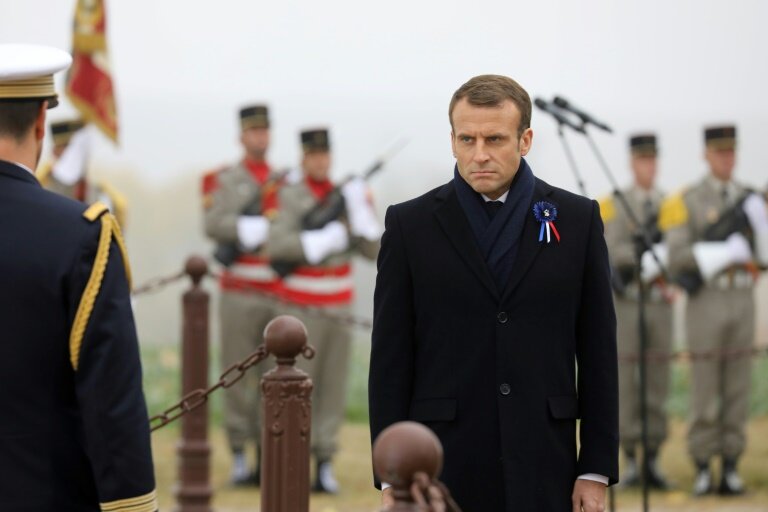Stop being naive and assert independence from the U.S.: Macron

TEHRAN - Amid escalating tensions between France and allies over the AUKUS pact, the French president has reiterated the need for asserting defense independence from the United States.
Emmanuel Macron has said that Europe must stop being naive and build up its military capabilities to defend the continent.
Macron made the remarks on Tuesday after Greece agreed to purchase French warships worth at least $3.5 billion. The two countries will also pursue a joint defense partnership.
France has entered an unprecedented diplomatic crisis with the three countries following the signing of a tripartite security agreement between the United States, Australia, and Britain in recent weeks, which led to the termination of the Paris-Canberra agreement on the sale of nuclear submarines.
Macron, who spoke Tuesday at a news conference with Greek Prime Minister Kyriakos Mitsotakis, took the opportunity to call for European independence from the United States amid Washington's focus on China and the Indo-Pacific.
"For a bit over 10 years now, the United States has been very focused on itself and has strategic interests that are being reoriented towards China and the Pacific," he said.
"It's in their right to do so," he added, but "we would be naive, or rather we would make a terrible mistake, to not want to draw the consequences."
Only last week, Macron and Biden spoke in a phone call requested by the White House. Following the phone call, France said it would send its envoy back to the U.S.
In a joint statement, Macron and Biden stated the United States "recognizes the importance of a stronger and more capable European defense, that contributes positively to transatlantic and global security and is complementary to NATO."
Macron mentioned that statement Tuesday, saying the United States is "a great historical ally and an ally in terms of values. And that'll remain the case." Seeking European independence in defense would be complementary and not constitute an "alternative to our alliance with the United States," he added that it would occur "within the framework of NATO."
“For a bit over 10 years now, the U.S. has been very focused on itself.”
Macron first came up with the idea of forming an independent European Army during the presidency of former U.S. President Donald Trump, when the rift between the two Atlantic states became more apparent.
In a blunt interview with The Economist on November 7, 2019, Macron said, "What we are currently experiencing is the brain death of NATO." Europe stands on "the edge of a precipice," he added.
He then said, "If we don't wake up [...] there's a considerable risk that in the long run, we will disappear geopolitically, or at least that we will no longer be in control of our destiny. I believe that very deeply."
That year, the French president stressed that extremist nationalism and foreign forces threaten Europe's territorial integrity and that he seeks an independent Europe with multilateral relations.
In response to Macron's remarks, the U.S. then President Donald Trump called the idea insulting and called for France to play a more serious role in NATO and pay its share of the alliance.
In the years since World War II, the idea of forming an independent army in Europe, especially in Western Europe, has occupied the minds of the leaders of the Green Continent. After World War II, when Europe was in ruins, the task of governing Europe was transferred to the Soviet Union and the United States by the resolutions of the Yalta Conference, leaving a marginal role to Britain and France.
Of course, the formation of a united European army also has its opponents. Since Britain's absence, the German and French armies will be the most powerful European armies, the European army will practically become a Franco-German plan.
Alongside this, an independent European military force will be in direct competition with NATO, with a solid and staunch opponent called the United States, which is strongly opposed to the formation and strengthening of multilateralism in the international system.
